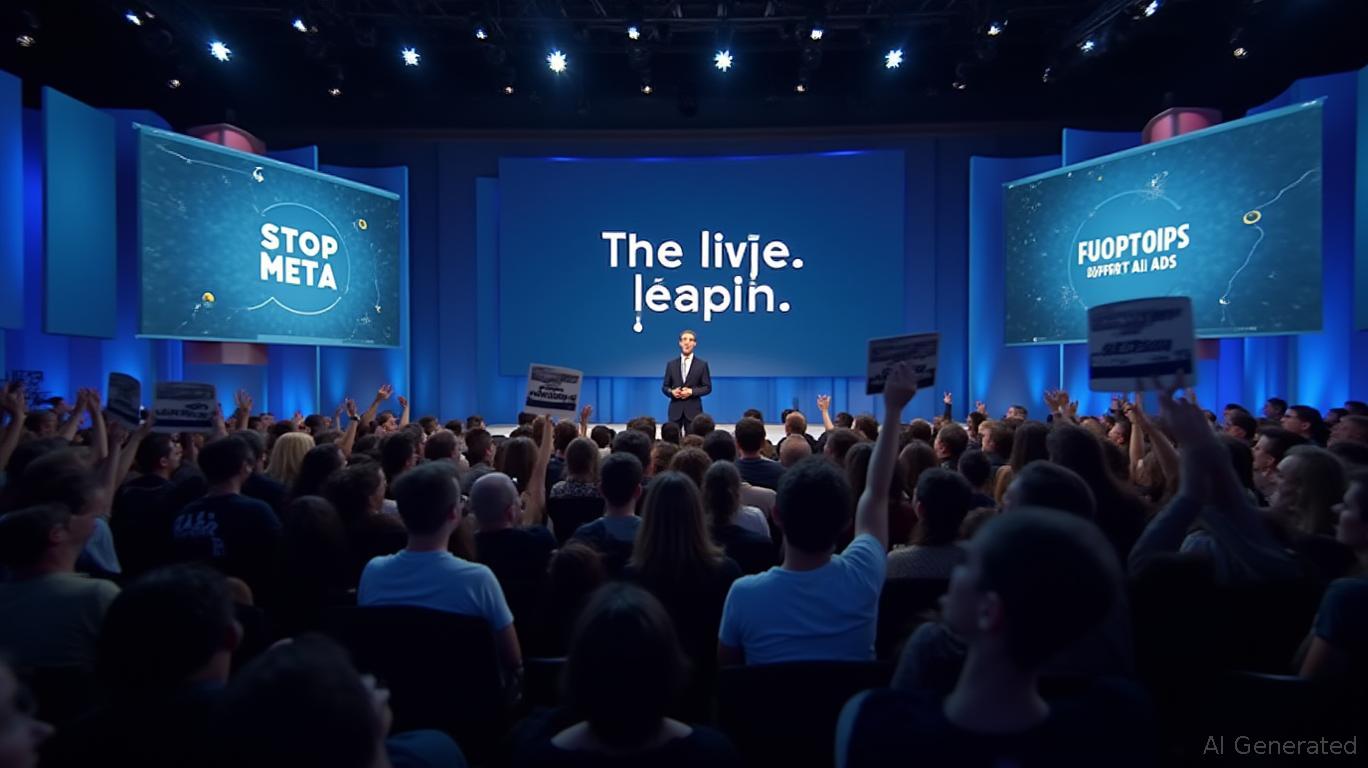Meta's introduction of AI-powered advertisements ignites a discussion on privacy concerns versus technological advancement as their launch approaches
- Meta will launch AI-driven hyper-targeted ads using first-party data from chat interactions starting Dec 16, 2025. - The strategy excludes sensitive topics and complies with GDPR in the EU, but U.S. users lack opt-out options, raising privacy concerns. - Experts warn of data collection incentives and potential industry shifts toward stricter privacy frameworks. - Meta's approach aims to boost engagement and advertiser ROI while competing in the AI-advertising landscape.
Meta Platforms Inc. (META) plans to transform its advertising platform by utilizing data from user interactions with its AI features to provide highly personalized ads and content, beginning December 16, 2025, as reported by a
This development follows a broader industry trend where advertising platforms increasingly use AI to interpret user activity without relying on third-party cookies. Notably, Meta’s rollout will exclude sensitive categories such as health and politics to address privacy concerns. The company stresses adherence to local laws, including the EU’s GDPR, which allows users to opt out of this data use for advertising. However, in the United States, users will not have an opt-out option, prompting debate over data rights and openness.

Reactions from industry professionals are varied. Linguist Emily Bender cautions that the update may motivate Meta to create AI tools that encourage users to spend more time interacting, thereby collecting more data. Meanwhile, digital marketing agencies such as Ignite Visibility note that advertisers can adapt by adopting first-party data strategies to remain compliant while expanding their audience.
Meta’s strategy also highlights its efforts to stay ahead in the AI-driven advertising sector. As rivals like X (formerly Twitter) test AI for ad improvements, Meta’s use of AI chat data could set new standards for highly targeted marketing. Experts believe this move could shape industry practices, encouraging stronger privacy protections as companies balance innovation with consumer confidence.
Elsewhere, several companies have announced notable financial results. The Vita Coco Company (COCO) has raised its full-year 2025 outlook, now expecting net sales between $580 million and $595 million, fueled by robust coconut water demand and new product launches, according to a
On the global stage, financial results were mixed. Samsung Electro-Mechanics Co. (009150.KS) saw its Q3 2025 net profit jump 91% year-over-year to 219.85 billion won, thanks to increased sales and operating profits, according to a
In regulatory developments, Beijing courts sentenced five people to prison terms ranging from 2 to 4 years for operating a USDT-based foreign exchange scheme that illegally transferred $1.18 billion overseas, according to a
Disclaimer: The content of this article solely reflects the author's opinion and does not represent the platform in any capacity. This article is not intended to serve as a reference for making investment decisions.
You may also like
Shiba Inu Price Prediction: Falling Channel Holds as Regulated Futures Add New Volatility
Fed Rate-Cut Prospects for 2026 Rise as US Labor Market Softens and Consumer Spending Holds Up
Cardano Mirrors Its 2020 Blastoff: Is ADA Headed for $5 or $10 This Altseason?
Weeks after raising $100M, investors pump another $180M into hot Indian startup MoEngage